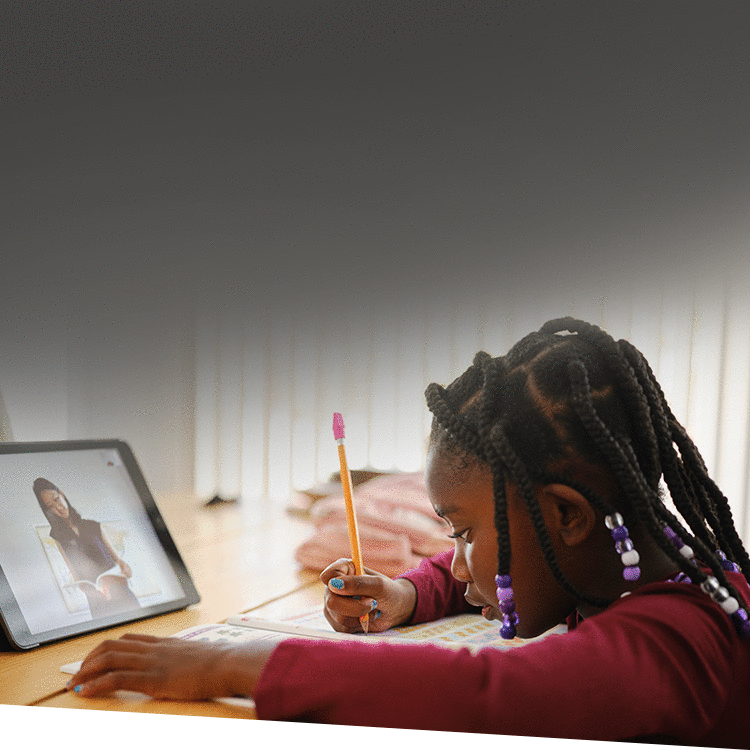We’re back to answer more questions we’ve received from teachers and academic administrators about the pandemic’s impact on teaching and learning. Many want to know what has changed since the pandemic began and where private schools are going from here.
The silver lining to this: Leaders have the opportunity to evaluate curriculum and observe how students work independently. Many school leaders have also developed a greater understanding of student engagement and formative assessment. It’s key to use these learnings as we move forward.
The question now is, once things get back to normal, do we continue this approach?
Many schools will return to the in-person classroom once the pandemic ends. However, some schools may permanently move away from a lecture-test-lecture model to engaging, asynchronous work, and formative assessment practice. To some, this is a positive development for education.
Are hybrid classes the new best practice?
No one is predicting that it will (or should) become standard practice for kids to stay home and log in for school. Having everyone together in an in-person classroom is the ideal goal. However, if you ignore the lessons learned from this pandemic, you would be doing yourself and your students a disservice. It is worthwhile to consider home-based independent activities to supplement programs in some areas.
Research suggests teachers are getting better at authentic, formative assessment. They have discovered that blended learning, versus sitting in lecture, offers a better approach to learning. We believe schooling that effectively combines in-person and distance learning strategies will become a “best practice” moving forward.
How will assessment work in the future?
Traditional assessments are less effective for distance learning—especially regarding the challenges teachers and students must overcome, including learner verification, timing, unstable internet connections, and a distraction-rich environment.
Academic leaders and teachers should focus on measuring students' understanding instead of asking students to memorize material to take tests. Students should use their knowledge to demonstrate competence—simulating the requirements of the real world.
Quizzing to ensure understanding is a viable option, but only if there isn’t too much pressure on students. Encourage teachers to have students demonstrate competence with performance-based tasks.
What are the best practices for screen time?
The American Academy of Pediatrics and the World Health Organization (WHO) have screen time recommendations based on different age groups. Research shows students can handle slightly more screen time than previously thought, but it should be spread out during the day.
For students in grades K-5, encourage teachers to structure lessons with small chunks of screen time—15-20 minutes each—over the course of a day. Upper schools may expect students to log in for six hours a day, but sitting for multiple 75-90 minutes sessions is unrealistic. Instead, arrange for 20-minute sessions of lecture and live discussion with 30-minute breaks in between.
How can teachers best organize their day if they are managing both in-person and at-home classes?
Teachers cannot be expected to conduct live instruction all day and still have time to help students at home.
Lecture-casting—students tuning into live class and watching from home—lacks participation and does not work. Instead, have distance learning students complete active learning activities and then devote time to assessing their understanding.
Teachers and administrators should treat blended classes as if there are two sections—preparation and management. In practice, these sections function like two different cohorts, despite being the same class instruction.
There must be a reasonable teaching load, with time built into the schedule to work with the at-home kids. Be realistic with your expectations. Keep in mind that teachers should not be expected to conduct classes via multiple mediums, field at-home student questions, and answer parent emails in the evenings. This is not viable—it is a recipe for teacher burnout.
Set parameters for teacher availability, so expectations are clear to parents, teachers, and administrators.

Tune in to live webinars every week during the school year to get specific, research-backed insight you can immediately apply at your school.
Are there any recommendations regarding new contract language, such as a force majeure clause or information about distance learning?
Include language in your enrollment contract that shares information about the school’s policies should you return to full-time distance learning due to a COVID-19 resurgence or other cause.
Address the responsibilities that families will have and the technology students will need. Identify expectations for learning time and best practices for effective distance learning that match your school’s mission. Discuss these parameters with faculty and leaders before implementation.
As far as questions of force majeure, consult with your school’s attorneys and legal experts.
What tools, resources, and tips help facilitate student engagement in distance learning?
ISM recommends adding an education technology (ed-tech) integrator to your IT team. Technology is a given these days in education—you must adapt to this new methodology and provide tools, so your teams will be successful. In many schools, technology is driving their curriculum—an ed-tech department ensures your technology supports the curriculum and can help teachers as needed.
We hope these answer some of your questions about teaching and learning, including what to expect going forward. As we continue to navigate the twists and turns of the pandemic, including many areas returning to online learning, we hope these tips will help you, your teachers, and your students thrive in this environment.





